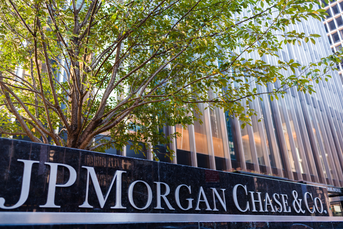Financial wellness benefits a ‘must-have’ work perk: Vestwell

Poll of more than 1,200 workers highlights shifting savings habits, student debt woes, and overwhelming demand for advisors.
Confronted with mounting economic challenges and uncertain prospects for retirement, workers across the US increasingly expect their employers to lend a hand with enhanced financial wellness benefits.
Vestwell’s annual Savings Industry Report, which draws from a survey of over 1,200 employees across the United States, highlights shifts in saving habits, benefits preferences, and the financial challenges faced by individuals in the current economic landscape.
“Employees are increasingly viewing financial wellness offerings as a ‘must-have’ in today’s workplace environment,” said Aaron Schumm, founder and CEO of Vestwell. “With inflation fears and uncertain economic outlooks affecting retirement goals, employers and advisors have a huge opportunity to enhance their offerings beyond the traditional 401(k).”
The survey indicates a strong expectation among employees that their employers will provide retirement benefits, with 85 percent of respondents anticipating such offerings and 89 percent more inclined to stay with an employer that provides them.
Vestwell’s research also highlights overwhelmingly strong interest in workplace education savings benefits, with nine-tenths of participants burdened by student loans (93 percent) acknowledging the impact on their capacity to save and address other financial objectives.
Other findings underscore the toll student debt continues to take on everyday Americans. Around three-quarters of survey respondents (74 percent) said they would prefer to work for employers offering student loan-related benefits, with roughly the same number (73 percent) saying they value the inclusion of a 529 education savings account in their benefits package.
“The student debt crisis continues to create barriers for Americans looking to save for retirement,” Schumm said. “By offering the latest savings solutions to their employees, employers can enhance retention and employee well-being.”
Vestwell’s latest research also revealed a preference for personalized financial wellness solutions, with 41 percent of respondents planning to seek advice from financial advisors. More than nine-tenths (94 percent) also agreed having a digital tool that offers personalized investment advice would valuable.
The report also exposes a critical gap in emergency savings, with 38 percent of those surveyed having less than $1,000 set aside for emergencies. Tellingly, a majority of the workers surveyed showed a strong willingness to participate in emergency savings accounts (70 percent) and health spending accounts (87 percent).
“Our mission of closing the savings gap aligns with this new era of employee benefits – one where technology and personalization converge,” Schumm said. “The future of financial wellness is accessible, inclusive, and tailored to meet the diverse needs of every saver.”
Shape up! How to improve the financial wellness of your employees
Learn more about reprints and licensing for this article.








